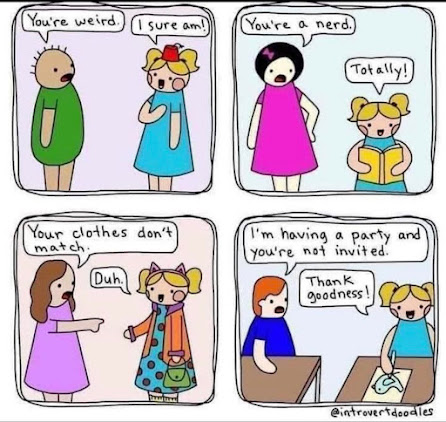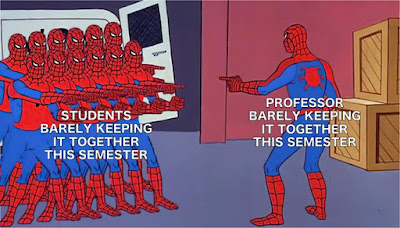So now the government has overruled regulation 274. I wrote about it ages ago, again firmly planted on the government side!! I'm really very, very pro-union, honestly, but some things just don't make sense to me. At the time, I was watching several LTO teachers in my building who knew the kids well, had developed strong relationships with students and staff, and had shown their excellence in spades, and they were passed over in favour of an unknown that happened to be in that top five in seniority. The LTOs passed over weren't brand new, as is often characterized, but had been supplying for years. It's not always that case that the longest serving are the most qualified or the best choice. And I haven't seen the regulation do anything to dampen nepotism. However, some people have seen the complete opposite effect. BUT that's not my focus here.
Some people think this entire issue is a distraction and are wary that the unions will go to town on it instead of focusing where we need them, on reducing class sizes by fighting to add more teachers or by allowing teachers to work from home. To what extent is all the reg. 274 talk a red herring to get us sidetracked? Lecce suggested that it will make hiring easier, but who's getting hired? Classes are being collapsed in this mess!
And then someone suggested to me that the entire reason we all have to teach online from inside the building isn't because of the board at all, but because of the union: it creates more supply teaching jobs. If teachers are allowed to teach from home, then they'll call in sick far less often, and there will be fewer opportunities for other teachers. I have NO idea if this is fact or fiction. It's pure conjecture at this point. But it does make sense that the union might support that (and therefore not fight it). And, while I completely understand that need for more job opportunities for OTs, having them show up to watch students log in while the teacher teaches from home, using up all their sick days, isn't necessarily giving them the best usable experience. A far better solution would be to split elementary school classes in half and have them "supply" using the teacher's lessons with the other half of the class and let the online teachers teach from home. But that's crazy talk, I know.
However, my real focus is this: Wouldn't it be absolutely AMAZING if teachers had a say in all these decisions??
Maybe we could!
For the sake of my mental health, instead of marking this afternoon, I watched a talk from the Hannah Arendt Center: Revitalizing Democracy: Sortition, Citizen Power, and Spaces of Freedom. It was well worth it! I think it will show up here eventually (with suggested readings here).














